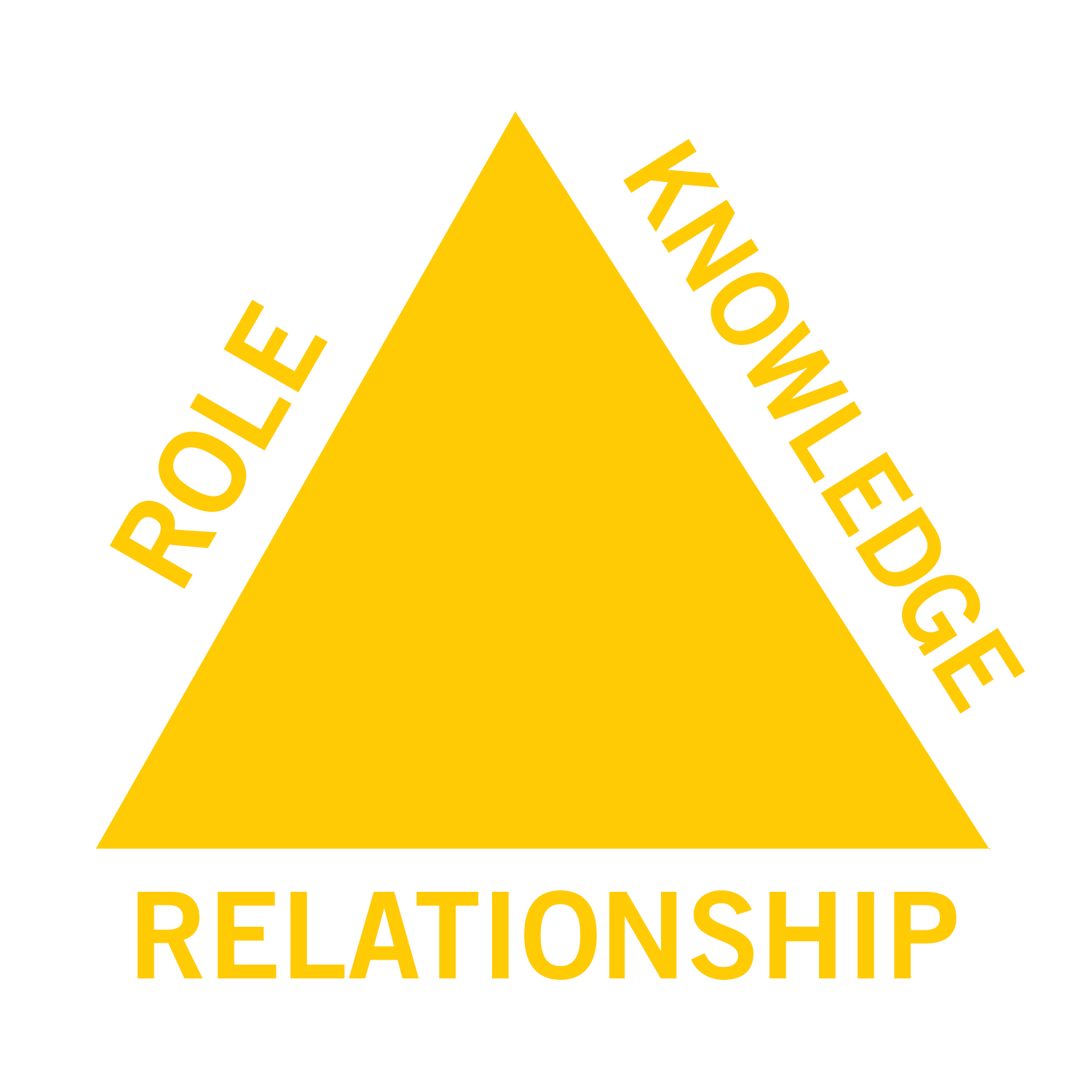The Influence Triangle and Why It Matters
I’d like to share with you a very powerful way to interact with and provide leadership to others. It’s called the Influence Triangle, and it was taught to me by Eric Farr and John Wade during an executive training session at BrainStorm, Inc. You may have heard of a similar idea by a different name, but no matter what it's called, it’s something that can change not only your professional life, but your personal life as well.

The Influence Triangle
We all provide leadership in our careers in many different ways, but for the purposes of this discussion let’s suppose you are a manager. You have several choices about the way that you can choose to interact with and manage your employees. These interactions can be driven by your role, knowledge, or relationship with those involved.
Role
Role is one method (or one side of the triangle) by which you can lead. After you’ve asked for input from your team members, consulted with other department heads, and gathered as much data as possible, your job role may require you to make important, course-altering decisions for your company. If there is a disagreement on a course of action or a need to change course, you may ultimately be responsible for making the final decision.
Sometimes effective management means pulling the “role card”—but this tactic should be used judiciously and thoughtfully. As you act in your role, you should be sure that you’ve deposited enough good will and trust in your bank of interactions before making a withdrawal. With enough positive interactions in the bank, others will trust your leadership and decision-making based on the vision, care, and strategy that you’ve demonstrated in the past.
Knowledge
At BrainStorm, our customers rely on our knowledge and subject-matter expertise to drive real results and improve adoption. Our knowledge and core competencies set us apart from our competition and represent something that we are honored to share with each one of our customers and partners.
Sharing knowledge and ability facilitates learning and growth, a principle that’s echoed in Tim Sanders’ Love is the Killer App: How to Win Business and Influence Friends. Sanders teaches the value of being a “lovecat,” or a "nice, smart person who succeeds in business and in life by sharing [his or her] intangibles.”
Many of the success we have in our careers and personal lives can be attributed to generous individuals who shared their knowledge and intangibles with us. As managers, it’s crucial to pay that generosity forward by sharing our knowledge with others and providing as much value as we are able.

Quote by Abraham Lincoln that hangs in BrainStorm HQ
Relationship
The most important and effective method of influence in the triangle is the relationship. Building meaningful and lasting relationships is the single best way to lead and motivate others, and cannot be forced or feigned. As I see it, this is the main tenet of how BrainStorm does business, and I absolutely love it.
Not all of the business deals we make at BrainStorm are in our financial best interest, but are made because of our commitment to creating long-lasting relationships. At BrainStorm, we’re taught to manage our different teams, in order of priority:
- Customer
- Company
- Team
- Individual
What exactly does this mean? Well, an individual must consider the good of the team before themselves. The team must place a greater priority on the company and its overall mission before its own objectives, and of course, the company always considers the individual relationship with its customer before anything else. It’s not always convenient, and it’s not always cost-efficient, but this method of doing business has served us well over the years. We value our customers and enter into a partnership with them for their long-term success.
Summary
As you have opportunities to lead, be thoughtful about how to best exercise your stewardship. Different situations require different approaches, whether they be based on role, knowledge, or relationship. You will find that goodness is reciprocated and value increases exponentially as you tailor your influence to better your organization, your team, and ultimately yourself.
